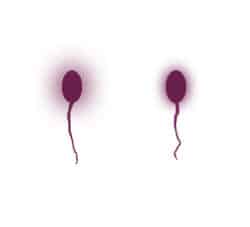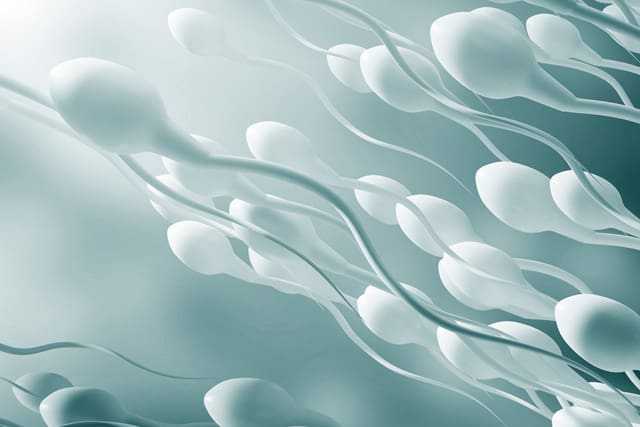Male Diagnostic Testing
Sperm Analysis
The sperm analysis is the first diagnostic test indicated for the study of male fertility to evaluate sperm production, motility, morphology, and the functioning of the prostate and seminal vesicles. The aim of this analysis is to determine whether the male plays a role in the couple’s infertility and to help the gynaecologist decide on the most appropriate assisted reproduction technique.
The sperm analysis examines macroscopic parameters such as volume, colour, appearance, pH, viscosity, elasticity and liquefaction time; and microscopic parameters such as the total number of sperm, sperm concentration, type of motility, morphology, presence of sperm clusters, and types and quantity of other non-sperm cells. According to the results of the analysis and the reference values of the World Health Organisation from 2010, we will diagnose the sperm sample. The gynaecologist will evaluate the results obtained from the sperm analysis as part of the couple’s case assessment.
Sperm Capacitation or REM
The sperm capacitation test or REM (Recovery of Motile Spermatozoids), is a complementary study to the sperm analysis.
This test involves eliminating sperm plasma from the ejaculate and recovering only the spermatozoids with the best motility and highest chances of fertilising the egg.
The motile sperm count obtained through this test helps the gynaecologist to decide which assisted reproduction technique will be the most appropriate.
Other Male Diagnostic Testing
DNA Fragmentation
Sperm DNA Fragmentation is an additional parameter that measures sperm quality. All sperm samples have some degree of fragmentation which, if higher than normal, can negatively affect a couple’s likelihood for success with assisted reproduction treatment. This is because elevated levels can impact fertilisation rates, lead to poor embryo quality and result in higher chances of recurrent miscarriage and lower success rates with assisted reproduction treatment.
Scientific studies show that different types of sperm DNA fragmentation are associated with different clinical conditions. While single strand DNA breaks are related to the condition of male infertility, double stand DNA breaks are associated with a higher risk of miscarriage owing to the spermatozoid. Our specialists will indicate, if necessary, the appropriate test for each patient.
To evaluate single strand sperm DNA fragmentation we use Halosperm®. This kit determines the DNA fragmentation index (DFI) by relying on sperm chromatin dispersion (SCD) as an indicator.

Non Fragmented Spermatozoids

Fragmented Spermatozoids
Sperm FISH
An abnormal sperm FISH analysis means there is an increased number of chromosome anomalies in the male’s sperm which could result in embryos with abnormalities (common cases of recurrent miscarriage and/or implantation failure). In these cases, a Pre Implantation Genetic Diagnosis on the embryos from In Vitro Fertilisation treatment is recommended before they are transferred to the female’s uterus.
The Sperm FISH Analysis is indicated when there is some type of severe abnormality in the sperm such as a low sperm count (oligozoospermia), in patients with unexplained recurrent miscarriage and/or previous unsuccessful In Vitro Fertilisation cycles.
More info
Complete the form or call us at (+34) 952 122 565.



